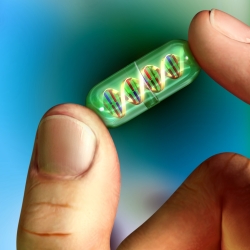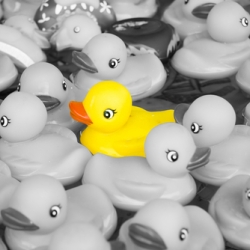 Microbiology is the study of bacterial, viral, parasitic and fungal infections and microbiologists are the key connections between the laboratory and the patient. They remain clinically involved with a range of different patients and have a vital role to play in advising on their management.
Microbiology is the study of bacterial, viral, parasitic and fungal infections and microbiologists are the key connections between the laboratory and the patient. They remain clinically involved with a range of different patients and have a vital role to play in advising on their management.
A microbiologists work is concerned with diagnosing, investigating and managing infectious diseases in both the hospital and community setting and in protecting people at risk against these infections. It also involves the management and control of outbreaks and public health responsibilities and monitoring patterns of infectious diseases locally.
The nature of the work means that it is likely that you would be involved in more interesting and difficult cases. It is also a rewarding specialty since the majority of patients when treated well can make a rapid and complete recovery. The continual challenge of new pathogens, re-emerging old ones and the expansion of immunocompromised populations such as people with HIV means the work is constantly stimulating.
There is scope to develop an academic career, with the laboratory based scientific work in particular having a large scope for research. Additionally the advent of newer technologies raises the opportunity to develop services further in collaboration with other disciplines and laboratories. The use of molecular diagnostic techniques is likely to expand in the future and the need to control healthcare-associated infections such as MRSA and C. Difficile is already a high priority for government and hospitals.
There are fewer on-call duties than in other clinical specialties, and on-call advice is usually given by phone, although routine laboratory work is usually seven days a week, so some rotas include weekend work.
The minimum requirement for entry to medical microbiology or medical virology is completion of F2 training or equivalent, and the point of entry is usually at ST1 level. The training programme lasts five years and consists of laboratory aspects of microbiology, health and safety, clinical skills and specialist areas of microbiology, such as health protection, epidemiology, mycology and parasitology as well as communication and management. There are also membership exams for the Royal College of Pathologists to be undertaken.
Increasing overlap with infectious-disease specialists is becoming common and some microbiology specialist registrars have joint training to become accredited in both specialties. Some microbiologists also go on to specialize in health protection, working within the Health Protection Agency laboratories.
Case study: Consultant Microbiologist, Savita Gossain
 “The main reasons I went into microbiology were the variety; wanting to make a difference and a fascination with bugs and how they adapt to their environment. Flexibility was also important since one can achieve a good work-life balance with a career in medical microbiology. There is huge variation in day to day problems which can take you from the intensive care unit to the acute medical wards via orthopaedics.
“The main reasons I went into microbiology were the variety; wanting to make a difference and a fascination with bugs and how they adapt to their environment. Flexibility was also important since one can achieve a good work-life balance with a career in medical microbiology. There is huge variation in day to day problems which can take you from the intensive care unit to the acute medical wards via orthopaedics.
Although medical microbiologists do not have direct clinical care I still feel I am making a significant contribution to patient outcomes because infections are treatable. We also have a major role in hospital and community infection control and make sure that antimicrobial prescribing is safe and rational by conducting antibiotic ward rounds.
I particularly enjoy the variety and ability to engage with a variety of staff in the hospital and community ranging from ward nursing staff, GPs, community nurses, pharmacists, managers and the Chief Executive! Infection control is fascinating; tackling and getting to the bottom of an outbreak investigation can be extremely satisfying.
There are always new/emerging pathogens. For example, last year we saw the emergence of H1N1 Swine Influenza wand we have recently seen multi-resistant gram negatives hitting the press (New Delhi metallo-betalactamase producing E.coli and Klebsiella). Also, diagnostic tests are evolving at a rapid rate and with contracting NHS budgets; laboratories have to strive to provide the most value-for money testing as well as embracing new technology.
There will always be a place for microbiologists as the bugs continue to get smarter! New resistance mechanisms are continually emerging also so clinicians will require input from us. In Virology we have already seen a big move to molecular diagnostics and this is now starting to happen in bacteriology and will accelerate.
For those wanting to go into microbiology there are currently several changes afoot with redesign occurring in infection training so it is a case of ‘watch this space’! If I could do it over again I would most definitely! No two days are the same.”
Further sources of information:
http://www.nhscareers.nhs.uk/specialtytraining/medical-microbiology-virology.shtml
http://www.rcpath.org/index.asp?PageID=117



